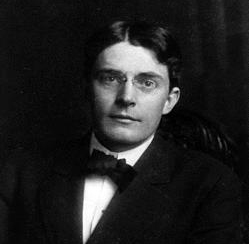Remaining Conscious of Behavior
 “What we need to do is to start work upon psychology, making behavior, not consciousness, the objective point of our attack.”
“What we need to do is to start work upon psychology, making behavior, not consciousness, the objective point of our attack.”
– John B. Watson, Psychology 1913
In this the 100th anniversary year of the publication of the article from which the above quotation was taken, it is useful to remind ourselves of what our subject matter is and why. Following the publication of Watson’s paper, the so-called behaviorist manifesto, psychologists started turning psychology into the science of behavior. What began as a voice in the wilderness in 1913 within a decade or two became a chorale, sung by hundreds of academics and educators. The emphasis in American psychology shifted from considering behavior as reflecting consciousness or other mental activities to considering behavior as a subject matter in its own right. By the 1920s behaviorists were everywhere in America’s educational and social institutions. An excellent book documenting how behaviorism became so widespread in the period around the First World War is O’Donnell’s Origins of Behaviorism. It is out of print now, but can be found through several on-line booksellers.
In his manifesto, Watson also took some psychologists to task for defining psychology as the science of behavior, but then simply using behavior as a way of studying mental functions and consciousness through inference. Behaviorist John Malone used the phrase “behavior as the ambassador of the mind” to describe such inferences. The approach conjures up an image of using behavior as a sort of Ouija board to figure out what is going on in some nether world that can’t be reached.
Beginning in the 1930s and continuing until his death in 1991, B. F. Skinner offered his own variety of behaviorism, clearly in the Watsonian spirit of behavior as a subject matter in its own right, but even more firmly grounded in experimental science. Like Watson, Skinner took psychologists to task for using behavior as an index or barometer of things going on in what he famously labeled “other universes of discourse.” Skinner singled out for his displeasure those who explain behavior by appealing to either conscious or unconscious processes (cognitivism and psychoanalysis, respectively) or to physiological processes. Accounts in these terms were for Skinner reductionistic and unacceptable.
Skinner’s alternative was to propose a true science of behavior, in which behavior was not reduced to mental or physical mechanisms, but rather to consider it as noted in the previous paragraph – a subject matter in its own right. This meant at least two things. First, behavior is of the organism acting as a whole, not just an arm, a leg, or a brain attached to a body. Behavior is holistic. Second, the appropriate universe of discourse is the environment in which the organism behaves. The behavior of living creatures, then, is a product of the organism’s interactions with the environment. And in that environment are to be found discriminative stimuli, reinforcers, and punishers that act on and with the organism to determine its behavior.
Skinner’s science of behavior, a direct legacy of Watson’s behaviorist manifesto, continues to the present, participating in such far-flung “universes” as business, education, behavior problems of adults and children, drug abuse treatment, behavioral medicine, and basic research on learning and motivation. Successes in all of these venues keep us all conscious of the value of behavior as a subject matter in its own right.



